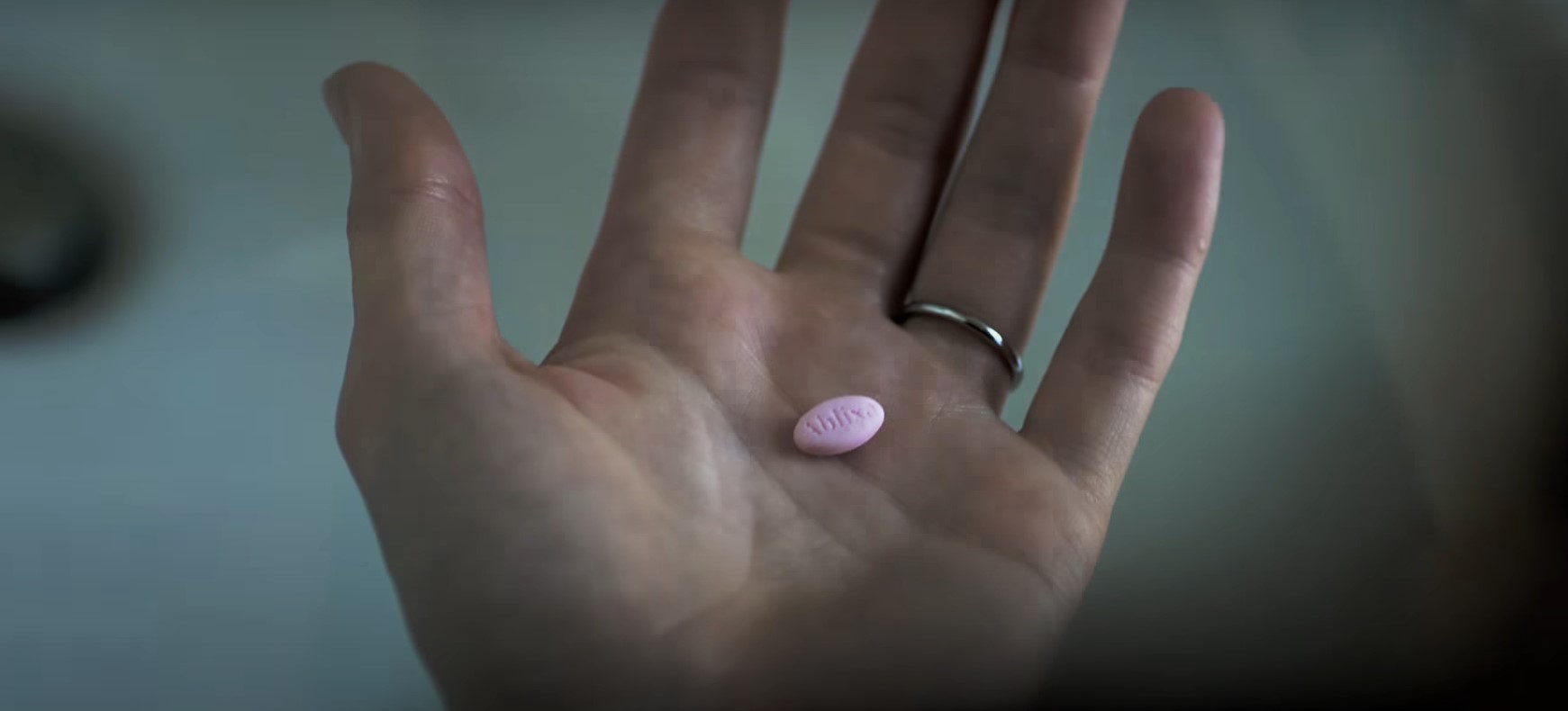A Steven Soderbergh directorial venture, ‘Side Effects’ (2013) begins with much promise. It tells the story of Emily Taylor (Rooney Mara), a young woman seemingly suffering from depression. After what looks like a failed suicide attempt, Emily meets Dr. Jonathan Banks (Jude Law), a psychiatrist, who recognizes her symptoms and begins treating her. When other drugs don’t work, Jonathan prescribes Emily an anti-depressant called Ablixa (alipazone).
Things initially get better for Emily, but soon, side effects start to appear. The most prominent among them is sleepwalking. During one such episode, an incident occurs that results in a death, rendering both the lives of Jonathan and Emily out of control. But is Ablixa a real medication or movie prop? We’ll shed some light!
Ablixa is a Fictional Drug
Ablixa is not a real anti-depressant. Scott Z. Burns, the screenwriter who penned the script of ‘Side Effects, reportedly approached Emily Oberman of the Pentagram designing studio to develop a believable branding and identity for the fictional Ablixa.
The anti-depressant plays a very important role in the narrative, basically setting up the main conflict in the movie. Because of this, Ablixa needed to look very much the thing it was supposed to be, a drug created by an influential and powerful multinational company. So, using typical big pharma promotional as inspiration, Oberman and her team created a quasi-marketing campaign for the fictitious drug that includes a website, pill packaging, TV advertisement, marketing literature, and even promotional items such as pens and mugs.
Here are a couple of interesting titbits. The voice we hear in the advertisement belongs to none other than Oberman herself. Pentagram’s New York office is the location where the scenes involving Emily’s workplace were filmed. The character reportedly occupied the same table Oberman did in real life at the time of the production.

Even though the initial part of ‘Side Effects’ promises to explore big pharma and how it exploits the system and the people, the film turns out to be a conventional psychological thriller. People do evil deeds because of their personal greed. If anything, the makers of Ablixa stand vindicated at the end of the film.
In real life, certain anti-depressants have been linked to deaths. In February 1998, Donald Schell of Gillette, Wyoming, shot his wife, daughter, and granddaughter before turning the gun on himself. In 2001, a Wyoming jury ordered SmithKline Beecham, the makers of the anti-depressant (Paxil) that Schell regularly took, to pay his relatives $6.4 million.
Moreover, there are reports of organ damage, congenital disabilities, and premature birth caused by anti-depressants, yet many doctors continue to prescribe these drugs to pregnant women. There have been hundreds of lawsuits against Pfizer for their anti-depressant Zoloft, with many of them claiming congenital disabilities were caused by the drug. However, Pfizer has prevailed in most of these lawsuits.
Read More: Where Was Side Effects Filmed?


You must be logged in to post a comment.